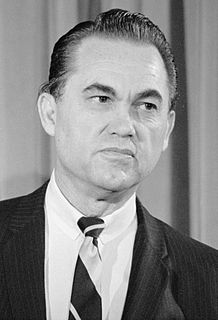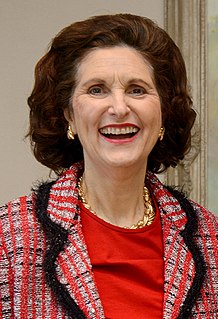A Quote by Bill Moyers
Lyndon Johnson believed the poor deserved a better life than the economy was providing them. He thought private power and greed had to be checked by a vibrant democracy.
Related Quotes
Liberals cling to the idea that critics of welfare are motivated by greed or callous disregard for the less fortunate. In fact, during the twenty-five years that followed Lyndon Johnson's declaration of war on poverty, U.S. tax payers spent $3 trillion providing every conceivable support for the poor, the elderly, and the infirm. Private foundations spent scores of billions more, and private and religious charities even more. Nevertheless, as Ronald Raegan later quipped, 'in the war on poverty, poverty won.'
Now in my view, if you were to line up the Presidents in the order of who made the greatest accomplishments, you'd put Lyndon Johnson in that arena with both Roosevelts probably, and [Abraham] Lincoln and so on. But the idea that Lyndon Johnson was operating as a free agent and coming up with these ideas on his own is nonsense.
I think I governed effectively. I don't have any doubts about that. I had the benefit, when I was in office, of having an excellent relationship with the Republican Party. We had superb bipartisan support and we had the highest batting average of any president since the Second World War, except Lyndon Johnson. He had a little better average than I did.
The truth was I knew, after all those flat January days, that I deserved better. I deserved I love yous and kiwi fruits and warriors coming to my door, besotted with love. I deserved pictures of my face in a thousand expressions, and the warmth of a baby's kick beneath my hand. I deserved to grow, and to change, to become all the girls I could be over the course of my life, each one better than the last.
The view that we know less than we thought we knew about how to change the human condition came, in time, to be called neoconservatism. Many ... , myself included, disliked the term because we did not think we were conservative, neo or paleo. (I voted for John Kennedy, Lyndon Johnson and Hubert Humphrey and worked in the latter's presidential campaign.) It would have been better if we had been called policy skeptics; that is, people who thought it was hard, though not impossible, to make useful and important changes in public policy.































